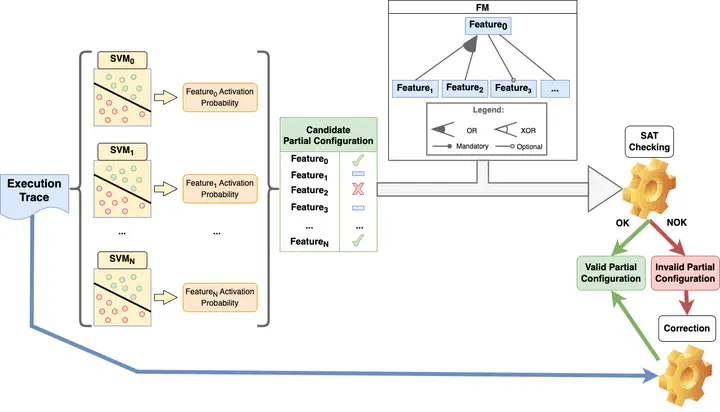 Conceptual representation of the feature-based approach during the prediction phase.
Conceptual representation of the feature-based approach during the prediction phase.Abstract
Mapping behaviours to the features they relate to is a prerequisite for variability-intensive systems (VIS) reverse engineering. Manually providing this whole mapping is labour-intensive. In black-box scenarios, only execution traces are available (e.g., process mining). In our previous work, we successfully experimented with variant-based mapping using supervised machine learning (ML) to identify the variants responsible of the production of a given execution trace, and demonstrated that recurrent neural networks (RNNs) work well (above 80% accuracy) when trained on datasets in which we label execution traces with variants. However, this mapping (i) may not scale to large VIS because of combinatorial explosion and (ii) makes the internal ML representation hard to understand. In this short paper, we discuss the design of a novel approach: feature-based mapping learning.